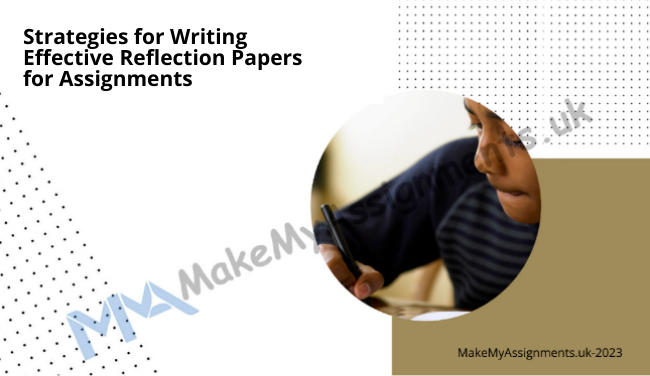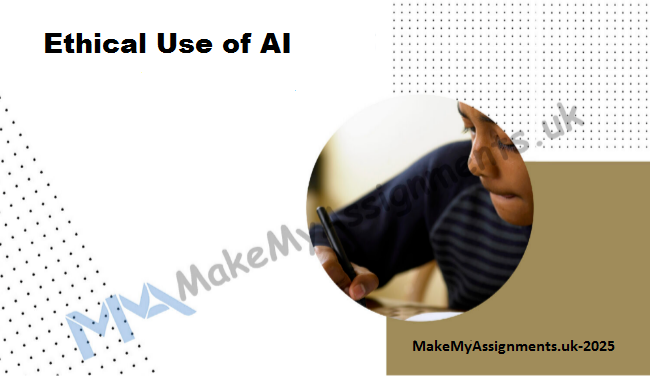Students often struggle with stress, anxiety, lack of focus, and constant distractions. Between assignments, exams,…

Strategies for Writing Effective Reflection Papers for Assignments
Reflection papers are an integral part of academic assignments that encourage students to engage with course materials, critically analyze their learning experiences, and connect theoretical knowledge to real-world applications. Crafting an effective reflection paper can be a rewarding experience, allowing students to delve into their thoughts and insights. In collaboration with MakeMyAssignments.uk, this blog will provide you with invaluable strategies to write reflection papers that stand out and showcase your understanding and growth.
1. Understand the Assignment Guidelines
Before you embark on your reflection paper, carefully read and understand the assignment guidelines. Note the length, formatting requirements, and any specific questions or prompts you need to address. MakeMyAssignments.uk emphasizes the importance of adhering to these guidelines to ensure your paper aligns with the expectations of your instructor.
2. Engage Thoughtfully with the Material
Effective reflection papers are born out of genuine engagement with the course materials. Take notes during lectures, readings, and discussions, highlighting key concepts, questions, and moments that resonate with you. Think critically about how these elements relate to your own experiences or the world around you.

3. Establish a Clear Structure
A well-structured reflection paper enhances readability and coherence. Begin with an engaging introduction that sets the tone for your reflection. Clearly state your main ideas and the purpose of your reflection. MakeMyAssignments.uk suggests structuring the body of your paper into sections that correspond to different aspects of your learning journey or significant moments of understanding.
4. Use Personal Examples
Share personal experiences that relate to the concepts you’re discussing. Whether it’s an anecdote, a real-life scenario, or an observation, incorporating personal examples adds depth and authenticity to your reflection. This also shows how the academic content has practical implications in your life.
5. Employ Critical Analysis
Don’t merely summarize the material you’ve learned; delve deeper by analyzing it critically. Consider the strengths and weaknesses of the concepts, theories, or arguments you’ve encountered. Think about how they align with your existing beliefs or challenge your perspectives.
6. Connect Theory with Practice
One of the central aims of reflection papers is to bridge the gap between theoretical knowledge and practical application. MakeMyAssignments.uk advises you to explore how the concepts you’ve learned can be applied to real-world situations. Discuss how these insights might influence your future decisions or actions.
7. Address Emotions and Growth
Reflection papers aren’t solely about intellectual exploration; they also invite you to reflect on your emotional responses and personal growth. Share how certain concepts evoked emotions, challenged your assumptions, or triggered new ways of thinking. Discuss how your perspective has evolved as a result of your learning journey.
8. Provide Adequate Evidence
When discussing your thoughts and insights, back them up with evidence from the course materials. Cite relevant readings, lectures, or discussions that support your claims. This demonstrates that your reflections are grounded in the academic content and contribute to the scholarly conversation.
9. Stay Concise and Focused
While it’s important to delve into your thoughts, be mindful of the word limit and stay focused on the main ideas. MakeMyAssignments.uk recommends keeping your reflections concise and avoiding unnecessary tangents that might dilute the impact of your paper.
10. Conclude with a Strong Takeaway
End your reflection paper with a compelling conclusion that summarizes your key insights. Reflect on the overall significance of your learning experience and how it has contributed to your personal and academic growth. Consider concluding with a thought-provoking question or a call to action that encourages readers to engage with the topic further.
Crafting an effective reflection paper requires thoughtful engagement, critical analysis, and the ability to connect theoretical concepts with practical applications. With the guidance and support of MakeMyAssignments.uk, you’re equipped with valuable strategies to create reflection papers that showcase your intellectual growth and understanding. By following these strategies, you’ll not only excel in your assignments but also develop skills that are essential for lifelong learning and personal development.




This Post Has 0 Comments